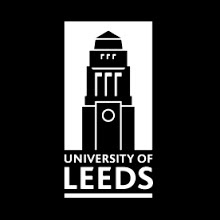
We are looking for an academically excellent, impact-focused candidate for an interdisciplinary PhD project working at the science policy interface. This fully funded project is a collaboration between the University of Leeds (Dr David Williams and Professor Nik Lomax) the the Good Food Institute (GFI) Europe – an international non-profit advancing the development of alternative proteins to address systemic climate and societal challenges.
Reducing the consumption of animal products in wealthy countries and avoiding shifts to high-meat diets as economies develop is essential for mitigating major environmental and societal risks. However, attempts to reduce consumption face resistance due to social, cultural, economic and political ties to animal products and production systems.
Alternative proteins (APs) – defined as plant-based, cultivated and fermentation-made meat, eggs, dairy and seafood – offer a possible solution. They have lower environmental impacts, offer public health benefits, and could be a highly scalable solution that offers consumers continued access to familiar tastes and dishes.
However, the growth of APs has not been universally welcomed, being described as a technlogical solution that fails to address the complex social, economic and cultural factors associated with food production and consumption. Further, the social, cultural, economic and ecological transformations that could result from a widescale shift to APs are understudied.
This project will address the overarching question: ‘How will alternative proteins affect people and the environment in the UK and Europe over the coming decades?’ Underpinning this are three questions:
- How are different APs likely to be accepted in different European contexts?
- How could European demand for different proteins change up to 2050?
- What would the social, economic, and environmental impacts of meeting this demand be?
Supported through the collaboration with GFI Europe, this project will place a strong emphasis on tangible, easily communicable findings which can transform policy and industry development. The successful applicant will undertake a three-month virtual ‘Research in Practice’ placement with GFI Europe.






